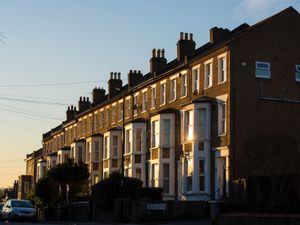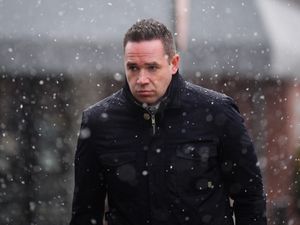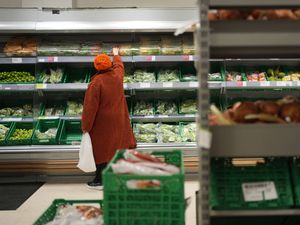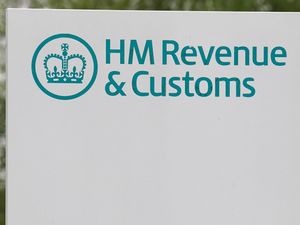Average UK house price hits record high of £250,000
Average London house prices also reached a record high of £514,000 and property values in the north-east of England have now surpassed a 2007 peak.

The average UK house price reached a record high of £250,000 in November – as typical London property values broke through the £500,000 barrier for the first time.
Across the whole of the UK, property values increased by 7.6% over the year to November 2020, marking the highest annual growth rate since June 2016.
The Office for National Statistics (ONS), which released the figures, said the average house price in London surpassed £500,000 for the first time in November 2020. The typical property price in London lifted to a record high of £514,000.

Within England, London and Yorkshire and the Humber had the joint highest annual house price growth, with average prices increasing by 9.7% in the year to November 2020.
House prices in the north-east of England also finally surpassed their previous pre-economic downturn peak in November 2020.
The North East continued to be the English region with the lowest average house price, which stood at £140,000 in November 2020. But this was higher than the previous peak of £139,400 recorded in July 2007.
Recent price increases may reflect a range of factors including pent-up demand, some possible changes in housing preferences since the coronavirus pandemic started and a response to the changes made to property transaction taxes across the nations, the ONS said.
Two London boroughs recorded annual price growth of more than 20%.
They were Kensington and Chelsea (28.6%) and Brent (23.9%).
The sharp annual price increase in Brent is partly caused by prices having fallen in the borough a year earlier, the report said.
The ONS said demand for property in inner-London may be particularly responsive to a temporary stamp duty holiday, which ends on March 31, as property prices are high and therefore so is the corresponding tax to be paid.
London also has a relatively high proportion of properties bought for investment, including from cash buyers and overseas investors. As such, demand for property in inner-London is likely influenced by a broader range of factors than the rest of the UK, the report said.
Average house prices increased over the year in England to £267,000 (a 7.6% annual increase), Wales to £180,000 (7.0%), Scotland to £166,000 (8.6%) and Northern Ireland to £143,000 (2.4%).
Mark Harris, chief executive of mortgage broker SPF Private Clients, said: “Come December’s data, the average property price will have likely broken through the £250,000 barrier.”
He said lenders are working “flat out” to help get deals already agreed completed before the end of March.
Mr Harris continued: “That said, there is still good availability of credit, despite demand, with competitive rates and more choice at 90% loan-to-value.”
But Samuel Tombs, chief UK economist at Pantheon Macroeconomics said: “The scenario in which house prices reverse some of their recent gains this year is clear to see.”
He said the eventual withdrawal of the furlough scheme, mortgage payment holidays and the return of the stamp duty threshold to its former level “likely would leave house prices about 2% lower by the end of the year than at present”.
Mr Tombs added: “Most of the recent rise in mortgage rates reflects banks’ repricing for the greater risks of lending in the current environment and so likely will persist, even if demand for mortgages eases. That said, Government policies are not fixed.”
Sarah Coles, personal finance analyst at Hargreaves Lansdown, said: “Given the length of time it takes for sales to go through, there’s every chance that if you make an offer in 2021 you won’t have completed the purchase by the (stamp duty) deadline.
“This is likely to take some of the urgency out of the market in the first three months of the year.”
Nick Leeming, chairman of estate agent Jackson-Stops, said: “The market was firing on all cylinders in November and our own branch data reflected this, with completions across our national network up 71% in November in comparison to three months prior.
“I do urge the Chancellor to consider how to ease the market out of the stamp duty holiday to avoid the cliff-edge Government has created.”
Howard Archer, chief economic adviser to the EY ITEM Club, said: “House prices could be around 5% lower than now by the end of 2021.
“The EY ITEM Club expects housing market activity to gradually improve late on in 2021, allowing prices to stabilise as the UK’s economy establishes a sustained firmer footing and the labour market comes off its lows, supported by the rollout of the Covid-19 vaccines.
“Very low borrowing costs should also help, with the Bank of England unlikely to lift interest rates from 0.10% during 2021 and for some time thereafter.”
Martijn van der Heijden, chief of strategy at online mortgage company Habito said the stamp duty holiday “will leave many who are still to get on the property ladder for the first time frustrated by rising prices”.
He said: “Buyers who are currently in the process are not guaranteed to complete before the tax holiday deadline and we should see this impacting the prices they are willing to pay.”





